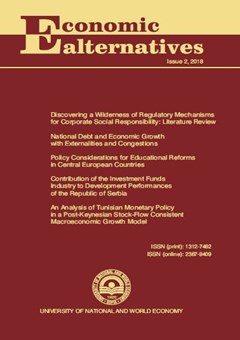Participatory Budgeting (Portugal) as a marshalling legal process to formally and democratically defining European Monetary System and Policy
Author: Jorge MEIRA COSTA
Abstract
This paper explains the legal foundation and presents the empirical results of the XXI Portuguese Constitutional Government?s pioneer initiative – The Participatory Budgeting Portugal (PBP) – which consecrates a democratic, direct and universal process allowing civil society to decide on public policies and investments in different governmental areas. The PBP?s key objective is to bring people closer to politics and decision making at a regional and national level, consolidating the principle of popular sovereignty that has already been exercised locally through one hundred and eighteen participatory budgets. Citizens have recently decided how to spend three million euros in certain areas defined by national government. From the results reported, interesting and concrete conclusions can be drawn and implemented in the next edition already confirmed. Since the EU budget faces a tough challenge to fund more with less, the PBP?s experience can be leveraged as a European ground-breaking policy in order to guarantee the ontological function of any political and economic organization: that is to ensure the welfare of all persons under its jurisdiction and to impede the retrogression of human rights. The time has come to write and develop lines of code of the EU values by creating a legal environment that enables citizens to participate directly in the design of genuine and logical monetary system, focused squarely to support the strengthening scientific role of the Euro.

